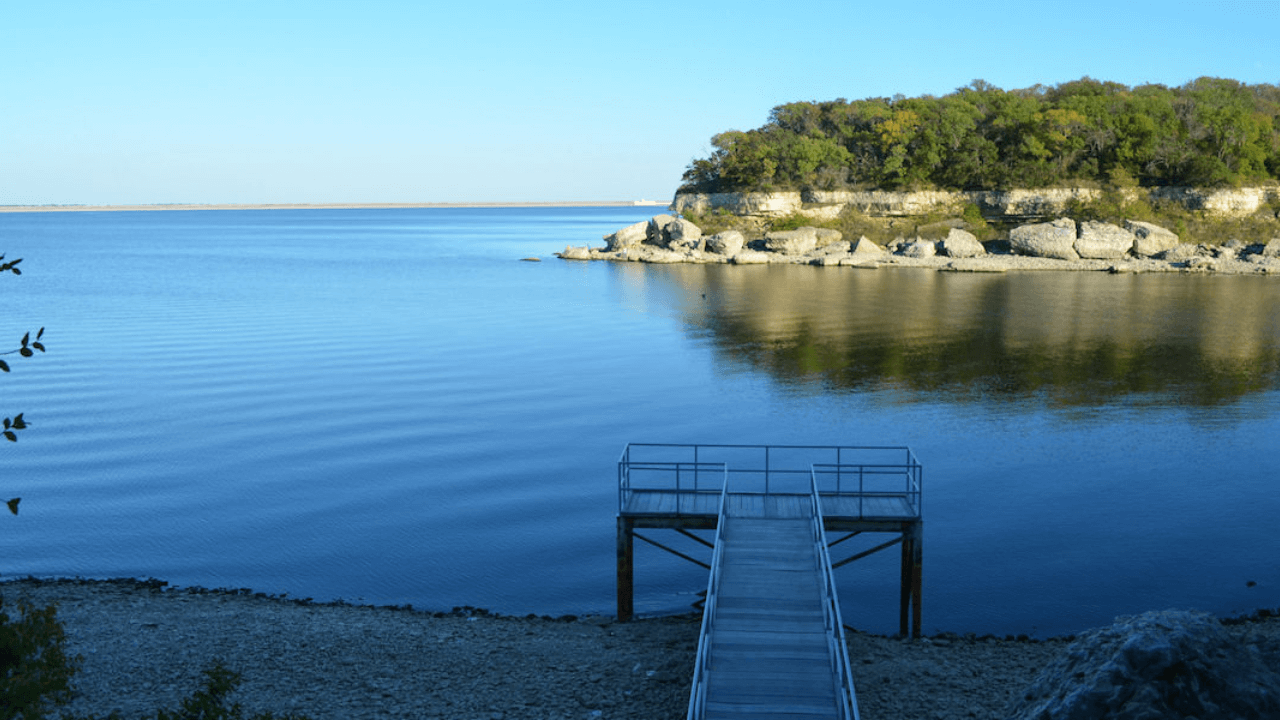Capitalization might seem like a minor detail, but in the world of grammar, communication, and cultural respect, it plays a much bigger role. Especially when it comes to naming specific places, proper capitalization ensures clarity, professionalism, and proper acknowledgment of regional identity. One such commonly discussed example is whether “Lake Texoma” should be capitalized. This article breaks down the grammar rules, common mistakes, SEO considerations, and even cultural reasons why the phrase “lake texoma should be capitalized” is more than just a linguistic preference—it’s a necessity.
Understanding the Rules: What Makes a Word Capitalized?
Capitalization in English follows clear rules—common nouns are lowercase, and proper nouns are capitalized. A proper noun names a specific person, place, or thing. Because “Lake Texoma” is a specific body of water located on the Texas–Oklahoma border, it qualifies as a proper noun.
According to standard grammar conventions followed in formal writing and education, every word that forms part of a proper noun should be capitalized. That includes both “Lake” and “Texoma.” Thus, saying or writing “lake texoma” or “Lake texoma” would be grammatically incorrect. This confirms the importance of the principle that Lake Texoma should be capitalized in every instance.
How Style Guides Reinforce Proper Capitalization
Style guides like AP Style, Chicago Manual of Style, MLA, and APA all agree on one core rule: capitalize the full name of geographical locations. In these guides, examples such as “Lake Michigan,” “Mount Everest,” and “Grand Canyon” are always capitalized in full.
Using these references, it’s clear that “Lake Texoma” should never appear in lowercase or with partial capitalization. These guides exist to maintain consistency across professional, academic, and journalistic writing. If you’re writing a travel blog, article, or guidebook, remembering that Lake Texoma should be capitalized ensures your content is grammatically sound and well-respected.
Common Mistakes and How to Avoid Them
People often make three key capitalization mistakes with Lake Texoma:
- Lowercasing Both Words: Writing “lake texoma” appears lazy or uninformed.
- Capitalizing Only the First Word: “Lake texoma” implies confusion between a common and proper noun.
- Overcapitalizing in Random Places: Such as “LAKE Texoma” or “Lake TEXOMA” in non-title case writing.
Each of these missteps reduces the readability of your content and diminishes its professional tone. Being vigilant about using proper capitalization throughout your writing is not just a style preference—it’s a necessity. That’s why grammar experts consistently emphasize that Lake Texoma should be capitalized at all times.
Capitalization and Clarity: Removing Ambiguity
Capitalization provides readers with visual cues. When you read “Lake Texoma,” it signals a specific place with a defined identity. If you read “lake texoma,” your brain may pause to interpret whether it’s a general lake or a distinct one.
In tourism, local journalism, and real estate listings, such ambiguity can hurt credibility. For instance:
- Correct: Visit Lake Texoma for fishing and hiking.
- Incorrect: Visit lake texoma for fishing and hiking.
In the second example, it reads like a generic body of water, not the actual, notable Lake Texoma. For precision and comprehension, Lake Texoma should be capitalized in every sentence where it’s used.
Cultural Significance of Naming Places Correctly
Lake Texoma is more than a body of water. It’s a key cultural and recreational destination for both Texans and Oklahomans. With millions of visitors annually, and a rich history involving flood control, power generation, and wildlife preservation, it holds cultural weight.
When people write “lake texoma” in lowercase, it may come off as dismissive or disrespectful to those who live in the region or cherish its significance. Proper capitalization not only shows literacy—it reflects cultural awareness. In all public signage, tourism brochures, and official websites, the phrase is always presented correctly. That alone supports the idea that Lake Texoma should be capitalized out of cultural respect.
SEO and Marketing: How Capitalization Affects Online Visibility
From a digital marketing perspective, capitalization does influence user perception and search engine indexing. While search engines recognize keywords in any casing, properly capitalized phrases help with click-through rates, readability, and alignment with what users naturally type.
Let’s say a travel blogger is writing about top fishing destinations. Using the phrase “Lake Texoma” will better match user expectations than “lake texoma.”
Additionally, consistent use of the proper form reinforces brand identity. Businesses around Lake Texoma—like marinas, rental properties, and resorts—depend on professionalism. Online content that adheres to grammatical standards performs better in local search rankings and garners more trust.
That’s yet another reason why marketers stress that Lake Texoma should be capitalized—it’s part of presenting a credible, polished brand.
Academic and Educational Standards
Teachers and professors expect students to write place names correctly. Essays, research papers, and even casual writing assignments must follow grammatical rules. If a student turns in a report that says “lake texoma,” it’s typically marked as incorrect.
In classroom instruction, this is used as a teachable moment. It helps reinforce that geographical locations are capitalized. This rule applies not only to famous places like Lake Tahoe or the Mississippi River but also to regional sites like Lake Texoma.
In educational contexts, the rule that Lake Texoma should be capitalized is not up for debate—it’s a core aspect of proper writing.
The Legal and Governmental Use of Capitalization
Government entities and legal documents never write geographic locations in lowercase. For example, FEMA, the Army Corps of Engineers, and state environmental agencies all refer to “Lake Texoma” in official documentation.
Whether it’s about environmental reports, land grants, or water management, correct capitalization is required by protocol. Any deviation could result in errors, misfilings, or legal ambiguity.
This institutional standard reinforces the broader rule that Lake Texoma should be capitalized in all formal communication.
Branding and Content Creation: A Professional Obligation
Content creators and bloggers should see capitalization as a reflection of brand quality. If you consistently write “lake texoma,” you may lose the confidence of your readers.
Your readers, whether tourists or local audiences, expect professionalism. Small errors like capitalization might seem harmless, but they create a subconscious impression that the writer lacks attention to detail.
Whether you’re crafting an itinerary, writing a product description, or developing a guide for weekend getaways, remember: Lake Texoma should be capitalized to maintain brand authority and trust.
How to Remember the Capitalization Rule
Here are a few simple tips to ensure consistency:
- Think of Lake Texoma as a person’s full name. You wouldn’t write “john smith” in lowercase.
- Use grammar tools or spelling checkers that highlight improper capitalization.
- Proofread backwards. Start from the last sentence and check each instance of “Lake Texoma.”
- Apply title case rules when in doubt—capitalize major words in names.
- Set a style sheet for your blog or business to standardize terms.
Conclusion
Capitalizing Lake Texoma isn’t just a stylistic issue—it’s about respect, clarity, accuracy, and professionalism. From grammar rules and style guides to cultural importance and digital marketing, every angle points to the same rule:
Lake Texoma should be capitalized.
Whether you’re writing a school report, designing a tourism brochure, or publishing a blog post, never cut corners on capitalization. It’s a small effort that pays off in credibility, reader trust, and clarity.
Frequently Asked Questions
1. Why exactly should Lake Texoma be capitalized? Because it’s a proper noun representing a specific geographical location, making it grammatically correct to capitalize both words.
2. What are the consequences of writing lake texoma in lowercase? It appears unprofessional, may confuse readers, and violates formal grammar rules.
3. Does capitalization affect search engine optimization (SEO)? Yes. While search engines recognize keywords in any case, proper capitalization improves readability and professional perception.
4. Are there style guides that support this rule? Yes. AP Style, Chicago Manual of Style, MLA, and APA all instruct capitalizing geographical names like Lake Texoma.
5. Is this rule relevant outside of academic writing? Absolutely. It applies in marketing, legal documents, branding, journalism, and cultural references—any place where professionalism matters.
Read More: SFFareHockey Statistics Yesterday: Full Breakdown of Game Results, Player Highlights, and Key Trends

